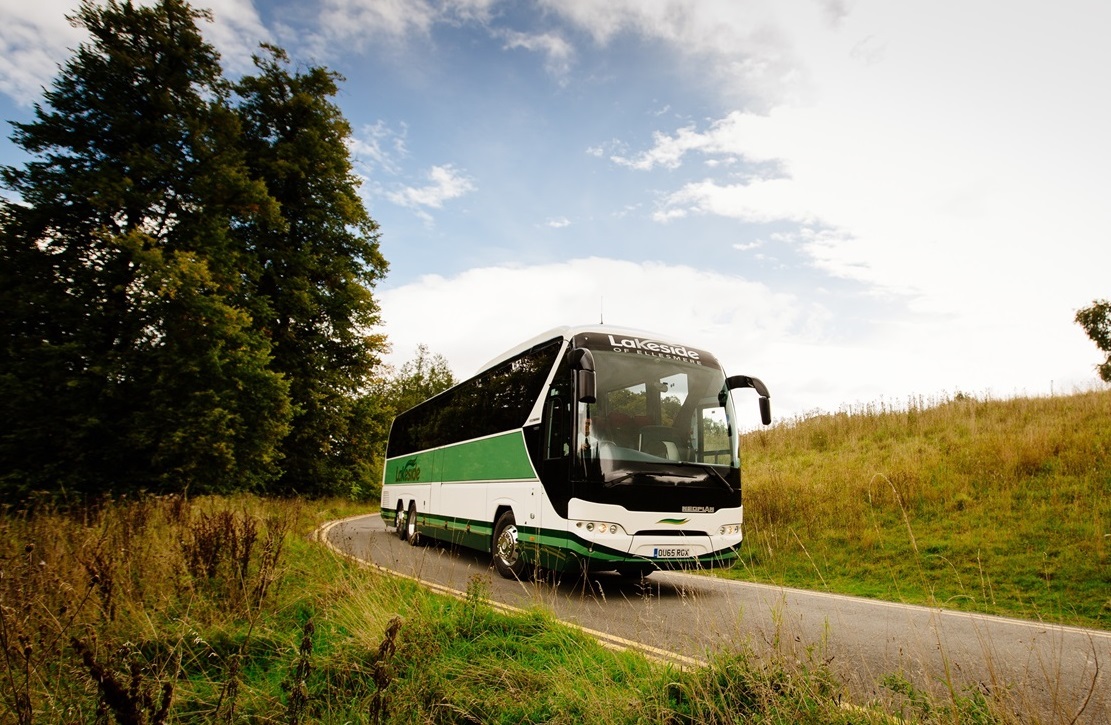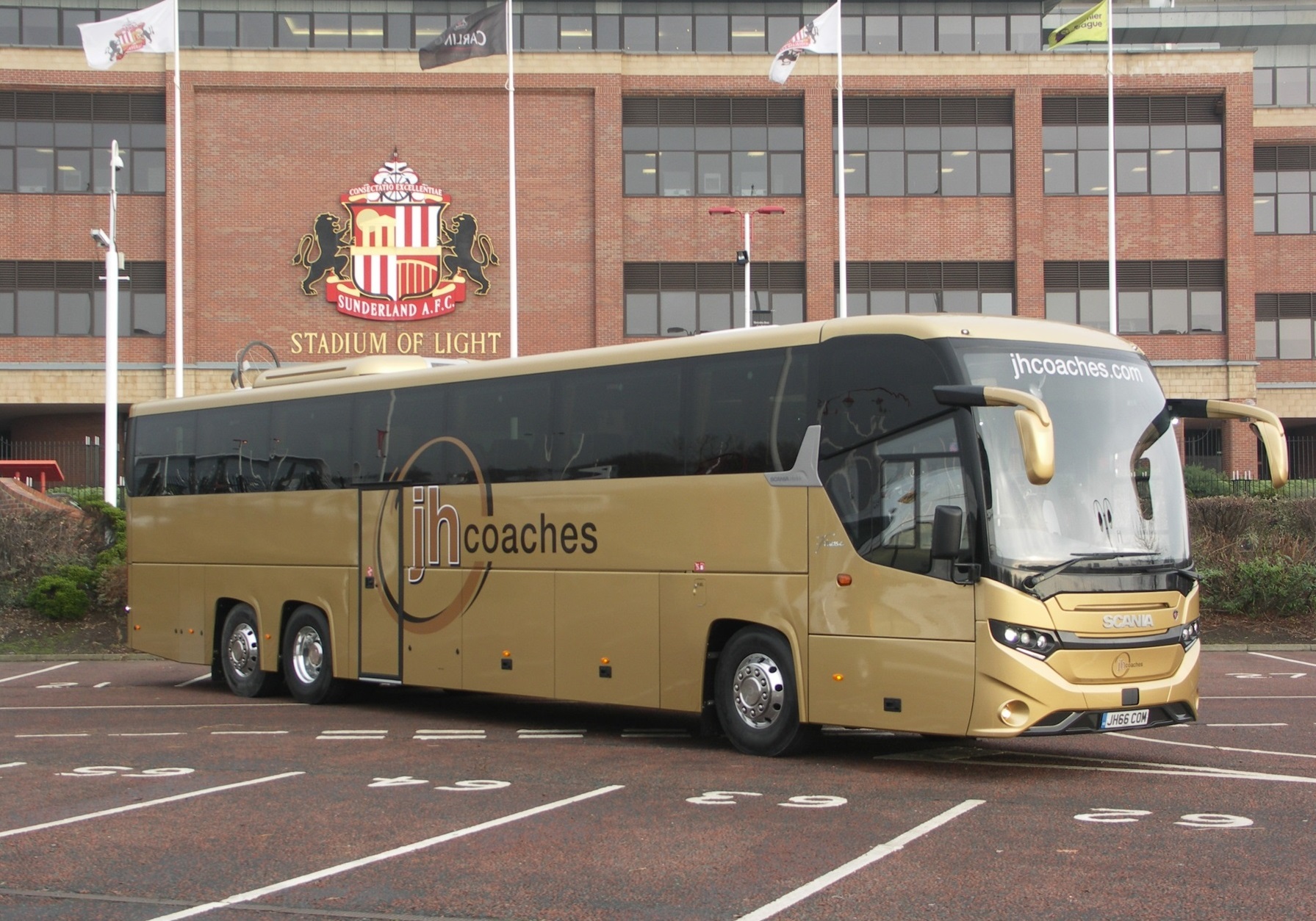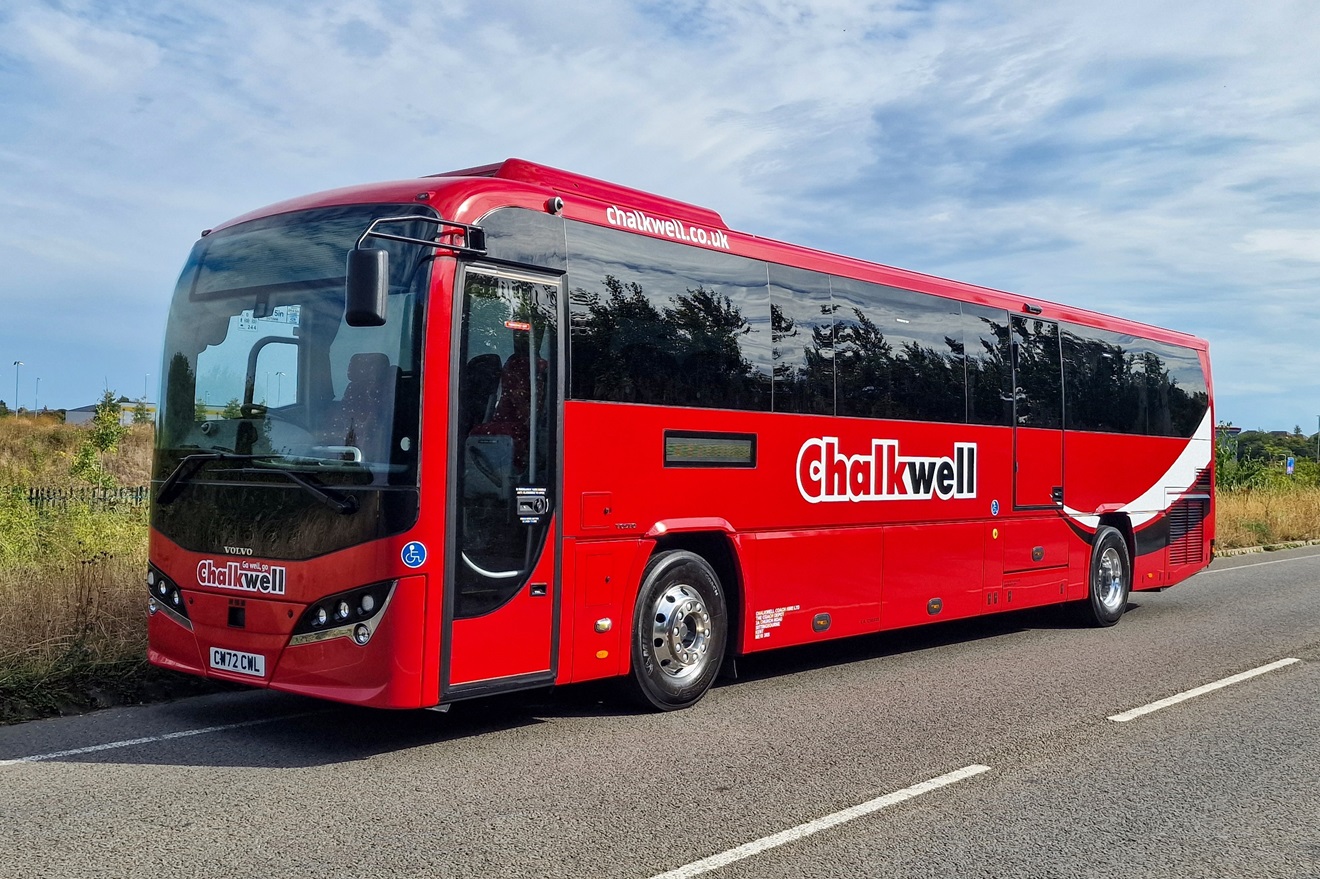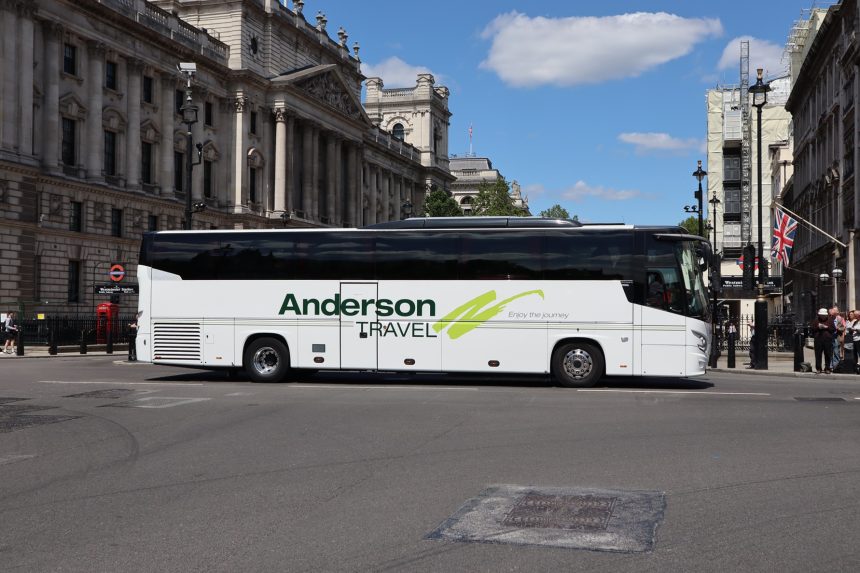Innovation is a key to the future of the coach industry, but it must also maintain razor-sharp focus on core work such as private hire, home-to-school and rail replacement, a panel of figures from across the sector told delegates at the recent Confederation of Passenger Transport conference.
First Bus Managing Director – Coaching and Lakeside Coaches Director Gareth Davies, Chalkwell Coach Hire Managing Director Roland Eglinton, BluMarbl Director Andrew Luckett and The Coach Travel Group CEO Tom Stables each spoke about the future of the industry, with Gareth and Tom commenting on the consolidation currently underway.
Roland, meanwhile, presented the SME operator position, while Andrew – whose consultancy is involved in data collection and modelling around how zero-emission could spread – considered what more is needed in that respect.
Coach industry conundrum on future of rail replacement
Challenges to coach operation remain clear. Gareth highlights both PSVAR and the PSV Accessible Information Regulations as examples of those; indeed, clarity on the long-term approach to the former is his number one priority for ministerial action.
He is also a strong advocate of capitalising on the fundamentals. Home-to-school and associated infill duties remain key, as does rail replacement. Gareth also notes that the home-to-work market represents a growing opportunity.

Rail replacement provides much income to the industry, but with long-term investment decisions to comply with PSVAR and the PSV Accessibly Regulations required, there is room for change to how rail replacement is organised and scheduled, panel members agree.
Roland notes that many operators have “huge challenges” in deciding on investment around vehicles that will suit rail replacement in the long-term. “The issue I have with that is how our local [train operating company] books work around four weeks in advance. We have some big numbers in hand around compliant vehicles, but little certainty of the level of work and what is in the pipeline.”
Tom agrees. Rail replacement “is very localised in both rate and planning,” he says. Prior experience showed how rail has a strong long-range planning scope.
Sharing it with replacement service providers and operators would bring multiple benefits. Those parties would have better visibility of investment requirements, and the product delivered would improve, he believes.
Consolidation: Big-ticket item for coach industry
Perhaps the subject gaining most airtime in coach presently is consolidation, including via large bus groups purchasing coach operators or the coming together of those businesses. Gareth and Tom are on the inside of such efforts and used the conference session to share insight from them.
Challenges aside, coaching is “a very stable platform” now and that is part of the attraction, says Gareth. “There is a reasonable amount of predictability and not a massive amount of disruption.”
Margins are another factor. Some of those are high and make such operations a compelling proposition to buyers. Change on the horizon for the big groups around bus franchising and renationalisation of train operators is another consideration.
“Possibly there is also the facilitation argument,” he continues. Coach operator sales are easier to execute where there is a greater reach of technology.
“Traditionally, if a bus group wanted to buy a coach company, then the direction of travel was to keep it close to existing operations or under a local bus unit. It does not necessarily have to be so now. We have got very simple communications platforms, such as Teams.”

What Gareth terms “a change in the professionalism across the coach industry” is another factor around consolidation. “The barrier to entry is now probably as high as it has been for a long time. When PLCs are buying businesses, due diligence is key. Nobody wants to onboard anything that will create a reputational problem. Professionalism means that due diligence is more straightforward.”
A threat to SMEs – or an opportunity?
Growing investment requirements and the ability to share knowledge and best practice are among The Coach Travel Group’s underpinnings, says Tom. “We see an opportunity to bring together high-quality businesses and then ask: ‘What can we do differently?’,” he explains.
“That is not necessarily ripping things up but saying: ‘We have this great presence. What can we bring to that party on efficiencies?’” Some constituent businesses within The Coach Travel Group may carry out work that others do not, and the opportunity to leverage that is clear, he continues.
Investing in technology as well as vehicles is streamlined under a multi-operator umbrella. “None of that comes cheap. We see a scale benefit in being able to pull together eight, nine or 10 operators; we can invest once, and deploy across all of them.”
As the chief of an SME coach operator looking at consolidation from the outside, Roland says that understanding those developments is not always easy. While they could be seen as a threat to independents, he cautions that there may concurrently be a degree of market opening that will allow SMEs to capitalise on their position.
“Alongside the bigger groups doing their thing, we can get closer to our communities on items like devolution,” he notes. Agility and an ability to quickly respond to challenges will be key. “This is a ‘to be continued’, but we are all alive to the opportunities.”

An evolving customer base for the industry
The client offering is something that must constantly evolve, panel members agree. “What is the customer searching for? Maybe it is a degree of consistent product and access to technology, and all the time us looking at how we can deliver value,” Tom suggests. The latter is particularly relevant for home-to-school services where local authority budgets are under pressure.
Also an influence on future coach operation are changes to the older demographic. Roland notes that its current members in some cases benefited from relatively cheap mortgages and favourable pension arrangements. “Is that sustainable in the long-term? My generation is not in that position, and we may be paying off mortgages into old age,” he suggests.
The implication for disposable income is clear, although Gareth notes that any such challenge will also bring opportunity. Future older generations might think differently about spending.
“They may previously have chosen to fly abroad, but in the future will they want a better-value tour?” While coach holiday providers have seen success with bespoke, higher-standard and more expensive products, the future may involve a volume-based approach again coming to the fore, he offers.

Zero-emission: A ‘really difficult’ position for SMEs
The true elephant in the room for coaching is the zero-emission transition. While a small number of operators in relatively niche circumstances have taken early steps and purchased battery-electric vehicles, for the majority it is a daunting – and currently inconceivable – prospect.
SMEs are “in a really difficult position” on decarbonisation, Roland notes. “It is almost like we have been told: ‘You need to go somewhere. We do not know what that place is, where it is, how you will get there, and how it will all be paid for’.” Guidance and information on decarbonisation are key for SMEs and they are currently badly lacking, he believes.
Larger operations, and particularly those owned by bus groups, are in a much better place on what is still a long game. Gareth notes that First Bus coach subsidiaries will leverage work already done at many depots within the wider business.
“Being part of a large group that has already been there and done it will leave us ready to hit the ground running,” he adds. “We will know what the mistakes are. And that is probably the key.”
Decarbonisation offers a bigger picture than vehicles
The operational reality for battery-electric is also critical to decarbonisation, Andrew says. Analysis by BluMarbl has shown that depot-only charging could potentially support 65% of all coach journeys, although variation among how that applies to individual operators is huge.
Opportunity to charge at motorway service stations will be the primary facilitator of widespread zero-emission coaching, he continues.
Megawatt charging – not here yet but coming – is a potential gamechanger. It would allow a battery-electric coach to drive from Glasgow to London in the same manner as a diesel. But service station layout will be important. Enabling such a coach to stop, with facilities for passengers and the driver while charging takes place, is imperative.
Both Andrew and Tom believe that tackling the decarbonisation conundrum should be the coach industry’s big ask of government. Gareth focuses on PSVAR in his hypothetical request to the industry’s political masters in Westminster; Roland’s priority is for ministers to always consider the SME operator in policy decisions that affect coach.
Perhaps those varied positions illustrate that, regardless of consolidation and technology change, diversity will always be the sector’s true strength.



























